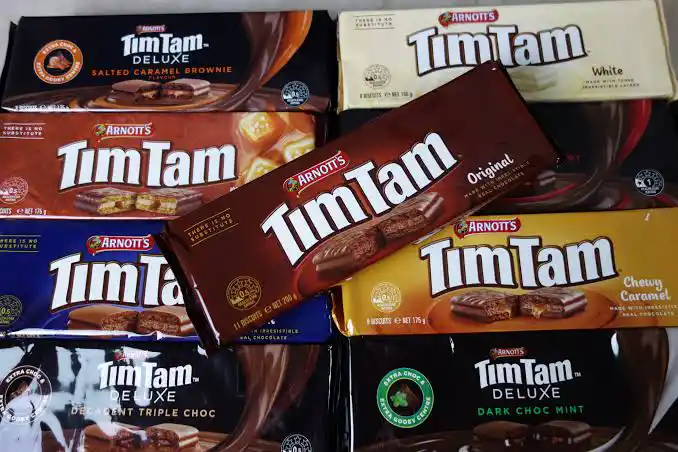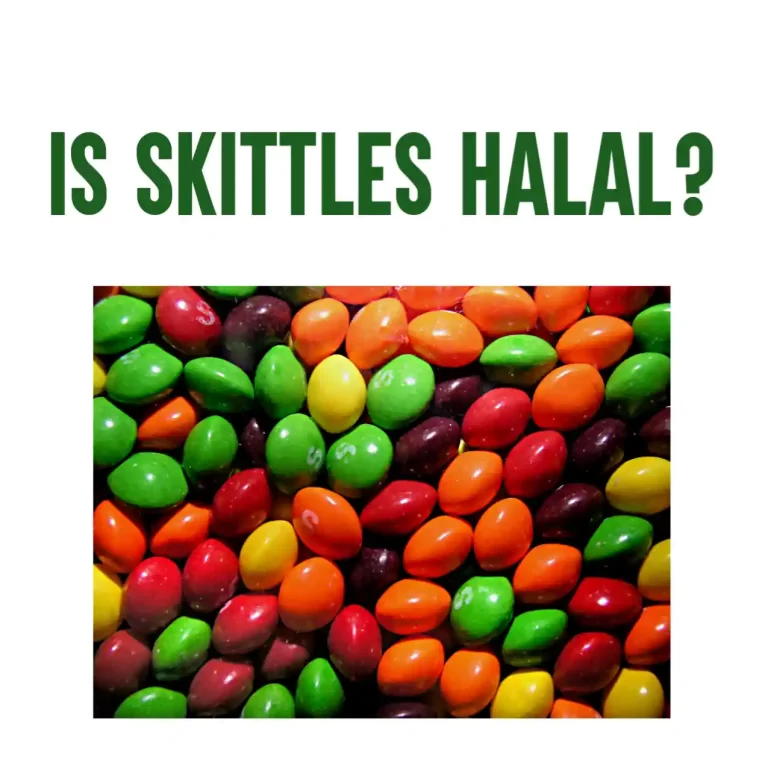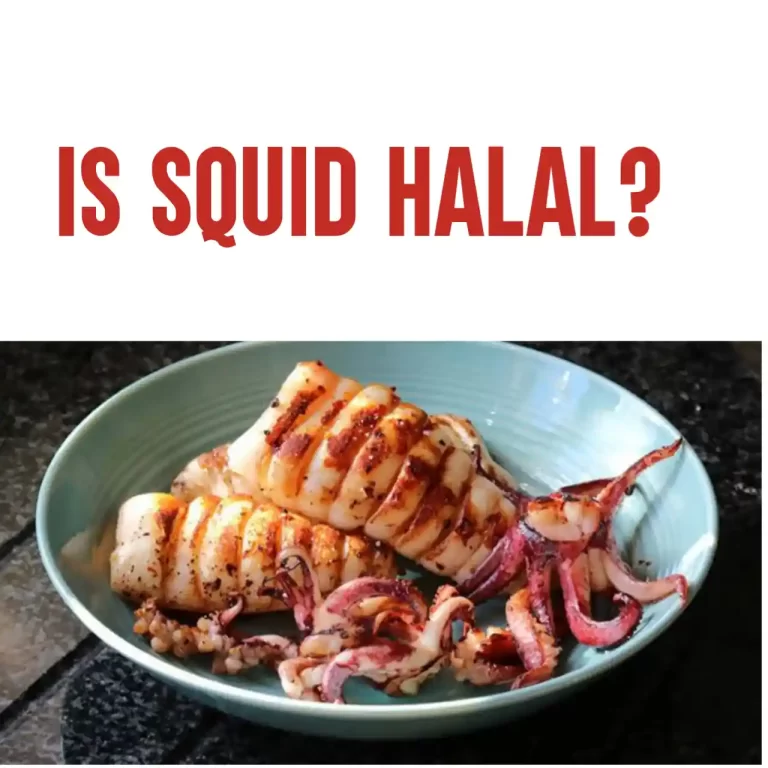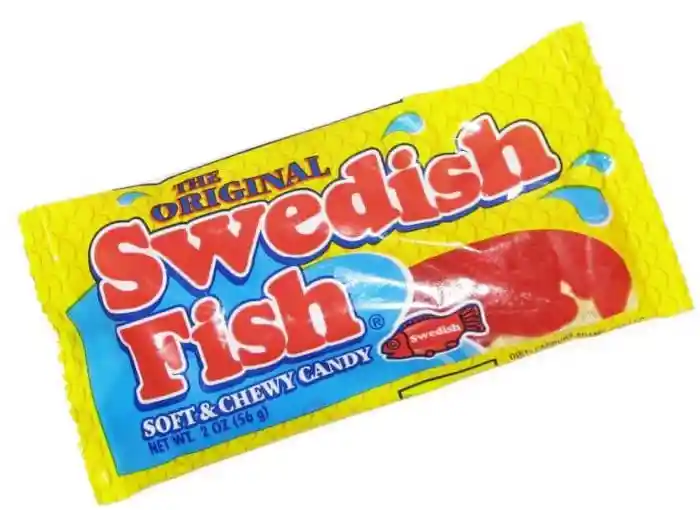Is Tim Tam Halal? Quick Answer
Advertisements
Tim Tam is a beloved Australian snack that have gained popularity around the world. These delicious chocolate biscuits are a favorite of many, but for those who follow halal dietary laws, the question: “is Tim Tam halal?” can be a concern.
As a popular snack enjoyed by many around the world, it’s important to understand the ingredients used in the production of Tim Tam to determine whether they meet the halal standards.
Is Tim Tam Halal?
The short answer is Yes, Tim Tam is considered halal. Although there are questionable ingredients used in their products, they don’t contain any clear non-haram ingredients. Most of the ingredients are generally halal and permissible.
Ingredients Used in Tim Tam
To determine whether Tim Tam is halal, we must first examine the ingredients used in their production.
The main ingredients in original Tim Tam biscuits according to Arnott’s website include:
Advertisements
Milk Chocolate (38%) (Sugar, Milk Solids, Cocoa Butter, Cocoa Mass, Vegetable Oil, Emulsifiers (Soy Lecithin, E476), Flavour), Wheat Flour, Sugar, Vegetable Oil (Emulsifier (Soy Lecithin), Antioxidant (E307b From Soy)), Golden Syrup, Food Colours (Caramel III, Beet Red, Cochineal, Annatto), Wheat Starch, Cocoa Powder, Salt, Baking Powder, Emulsifier (Soy Lecithin), Flavour.
While these ingredients are generally considered halal, their are some ingredients that makes the original biscuits questionable. So what makes TimTam questionable?
The original Tim Tams contain cochineal, a natural dye derived from scale insects in the Sternorrhyncha suborder. Cochineal is a scale insect in the Sternorrhyncha suborder. from which the natural dye carmine is derived.
According to IslamQA, if insects are processed and turned into another substance, there is nothing wrong with adding them to food and other things, on condition that they do not cause any harm.
It says in Tawsiyaat Nadwah ar-Ru’yah al-Islamiyyah li ba‘d al-Mashaakil at-Tibbiyyah:
Advertisements
Additives in food and medicine that come from a source which is najis (impure) or haraam may be turned into a substance that is permissible according to Islamic teachings in one of two ways:
Istihaalah (transformation)
What is meant by istihaalah (transformation) in fiqhi terminology is a change in the nature of a substance that is impure or haraam to consume, whereby the substance is changed into another substance that differs from it in name, characteristics and description.
In common scientific terminology, this refers to any chemical process that transforms a substance into a different substance, such as turning oils and fats of various origins into soap, and breaking a substance down into its various components, such as breaking down oils and fats into fatty acids and glycerin.
Just as chemical processing may be carried out deliberately by technical scientific means, it may also occur in a way that is not noticeable in the scenarios that were mentioned by the fuqaha’, as in the case of vinegar making, tanning and burning, for example.
Based on that, we may note the following:
Additives that are of haraam animal origin or of impure origin that have been processed and transformed – as referred to above – are regarded as pure (taahir) and permissible to consume in food and medicine.
Istihlaak (absorption)
This occurs when a small amount of a substance that is haraam or impure is mixed with a larger quantity of another substance that is pure and halaal, provided that the characteristic that makes it impure or haraam is no longer present.
This means that all the characteristics of that absorbed substance – such as taste, colour and smell – disappear completely, so that the small amount of the added substance is completely absorbed by the larger amount of the substance to which it is added.
This ruling is based on the characteristics of the substance that is of a larger quantity. For example:
- Additives that are alcohol-based solutions that are used in very small quantities in food and medicine, such as colourings, preservatives, emulsifiers and antioxidants.
- Lecithin and cholesterol, which are extracted from haraam sources without undergoing a process of istihaalah (transformation).
It is permissible to use them in food and medicine in very small quantities that are completely absorbed into the larger amount of the halaal and pure substance with which they are mixed.
End quote, taken from IslamQA website.

Halaladvisor.com.au contacted Arnott Australia and Unilever Australia & New Zealand, both companies confirmed to them via email that their products are not halal certified.
Arnott’s Australia Consumers@arnotts.com wrote, “ Arnott’s does not certify its products sold in Australia or New Zealand based on any particular religious beliefs.”
Halal certified is a stamp on the packaging saying it’s halal, which has certain requirements for a company to be able to print that, and it comes with a hefty cost, so companies choose not to go through the Hassel.
Please note that manufacturers may change the recipe of their products so make sure you double-check the label before purchasing.
Conclusion
In conclusion, Tim Tam are halal and can be consumed by those who follow halal dietary laws. The ingredients used in their production are generally halal.
As such, Tim Tam are a delicious snack that can be enjoyed by all, regardless of their dietary requirements.
It is worth noting that halal status can vary depending on the country of production. For example, Tim Tam from Indonesia and other Muslim countries are halal safe.
Therefore, it is always recommended to check the ingredients of the Tim Tam you are purchasing to ensure their compliance with your specific halal requirements.
Advertisements







